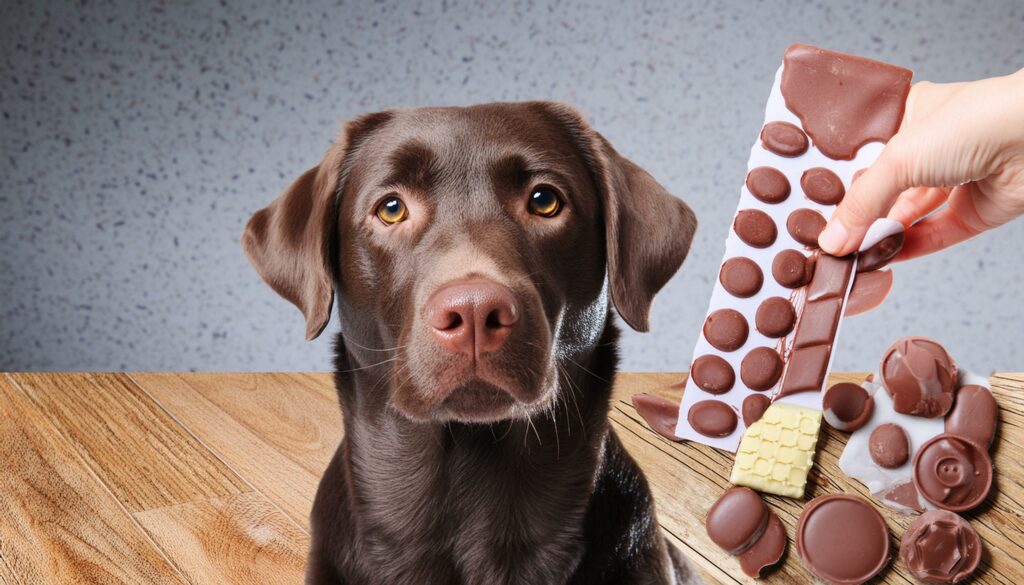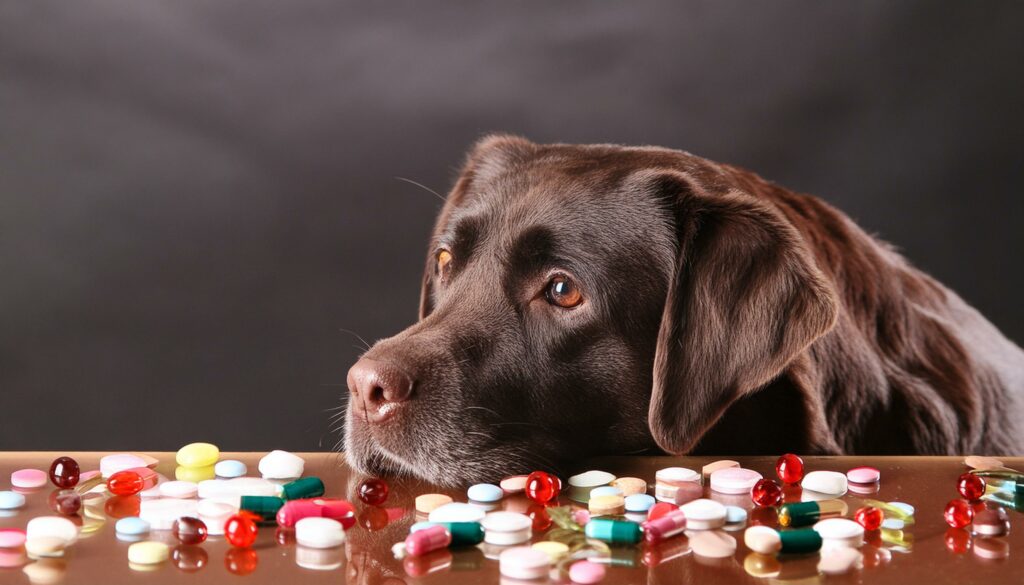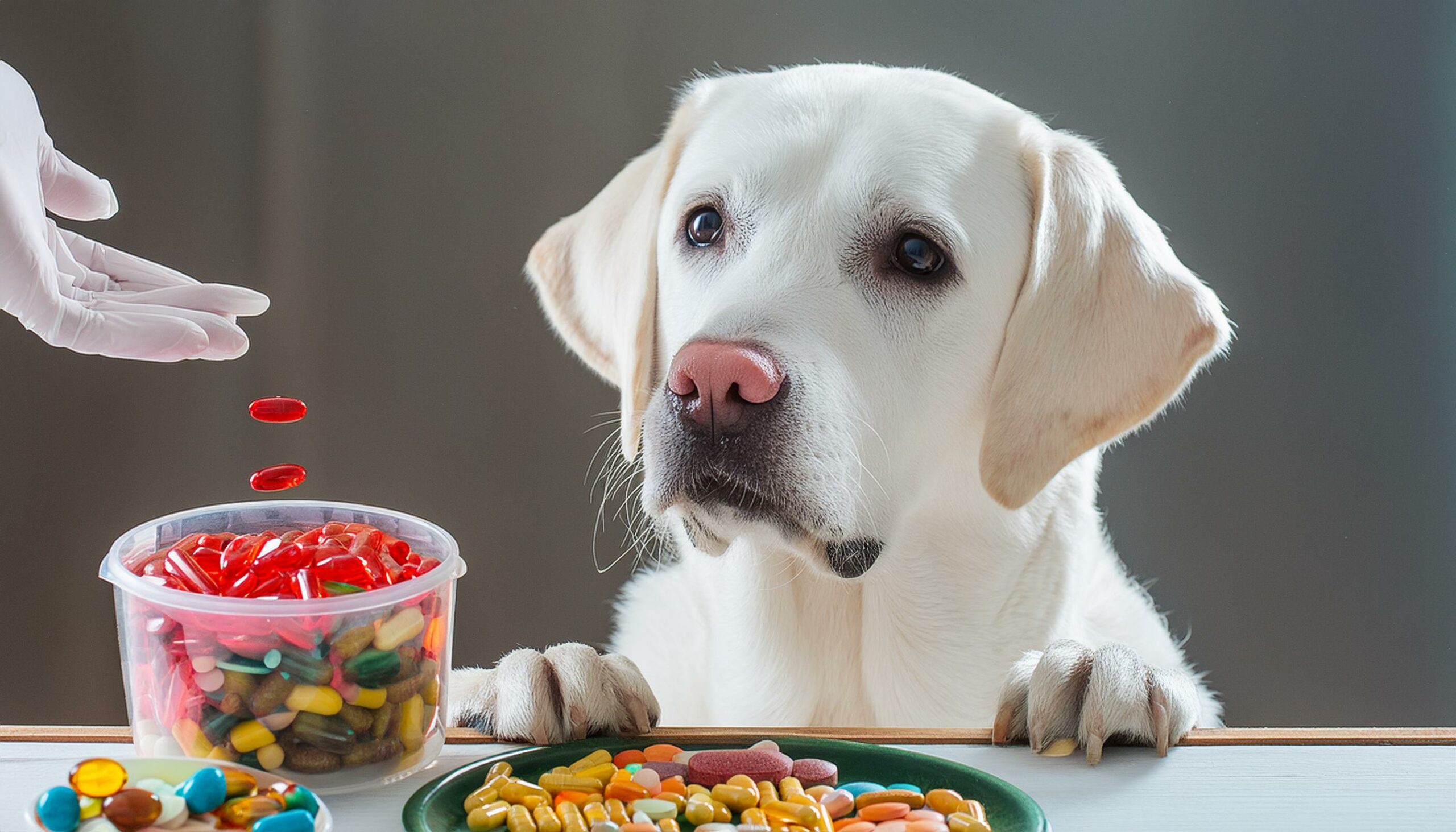Labradors, known for their friendly disposition and boundless energy, are cherished members of many households. As responsible pet owners, it’s crucial to understand the dietary restrictions that can safeguard their health and well-being. While Labradors may be eager eaters, certain foods can be harmful or even toxic to them. Let’s delve into a comprehensive guide on what foods Labradors should avoid.
Chocolate and Caffeine

The Danger of Theobromine: Chocolate, a favorite indulgence for many humans, contains a compound called theobromine, which is toxic to dogs, including Labradors. Theobromine affects the central nervous system and cardiovascular system, leading to symptoms such as vomiting, diarrhea, rapid breathing, increased heart rate, seizures, and in severe cases, death. Dark chocolate and unsweetened baking chocolate contain higher levels of theobromine, making them more dangerous for dogs.
Risks of Caffeine: Caffeine, found in coffee, tea, energy drinks, and certain medications, poses a similar threat to Labradors. Like theobromine, caffeine stimulates the nervous system and can lead to symptoms such as restlessness, rapid breathing, tremors, palpitations, and in severe cases, collapse. It’s essential to keep caffeinated products out of reach of Labradors to prevent accidental ingestion and potential toxicity.
Xylitol
Harmful Effects on Dogs: Xylitol, a sugar substitute commonly found in sugar-free gum, candies, baked goods, and even some peanut butter brands, is highly toxic to dogs. Ingestion of xylitol can cause a rapid release of insulin, leading to hypoglycemia (low blood sugar). Symptoms may include weakness, lethargy, vomiting, seizures, and liver failure. Even small amounts of xylitol can have severe consequences for Labradors, making it essential to check labels carefully and keep xylitol-containing products away from pets.
Common Products Containing Xylitol: Pet owners should be vigilant when purchasing products such as chewing gum, mints, breath strips, toothpaste, and sugar-free snacks, as they may contain xylitol. Additionally, certain brands of peanut butter, often used as a treat for dogs, may contain xylitol as a sweetening agent. Always opt for natural, xylitol-free alternatives when offering treats to Labradors.
Grapes and Raisins
Toxicity in Labradors: Grapes and raisins, while nutritious for humans, can be toxic to Labradors. The exact substance responsible for their toxicity is unknown, but ingestion can lead to kidney failure in dogs. Even small quantities of grapes or raisins can cause serious health issues for Labradors, making them foods to be strictly avoided.
Symptoms of Grape or Raisin Ingestion: Signs of grape or raisin toxicity may include vomiting, diarrhea, lethargy, loss of appetite, abdominal pain, weakness, dehydration, and decreased urination. If a Labrador has ingested grapes or raisins, immediate veterinary attention is necessary to prevent further complications and provide appropriate treatment.
Onions and Garlic
Compounds Toxic to Dogs: Onions and garlic, whether raw, cooked, or powdered, contain compounds that can damage a dog’s red blood cells, leading to a condition known as hemolytic anemia. Labradors are particularly sensitive to these compounds, which can accumulate over time with repeated ingestion, resulting in serious health consequences.
Symptoms of Onion or Garlic Poisoning: Symptoms of onion or garlic poisoning may not be immediately apparent but can include weakness, lethargy, pale gums, rapid breathing, vomiting, diarrhea, and collapse. In severe cases, hemolytic anemia can lead to jaundice, dark urine, and organ damage. Prompt veterinary care is essential if a Labrador has ingested onions or garlic to prevent further complications and facilitate recovery.
Alcohol

Effects on Dogs: Alcohol, whether in the form of beer, wine, spirits, or certain food products, is toxic to Labradors. Dogs lack the enzymes necessary to metabolize alcohol effectively, leading to alcohol poisoning even from small amounts. Ingestion can result in symptoms such as vomiting, diarrhea, difficulty breathing, tremors, disorientation, and in severe cases, coma or death.
Potential Dangers: Pet owners should take precautions to prevent Labradors from accessing alcoholic beverages, especially during social gatherings where drinks may be left unattended. Even a small amount of alcohol can have serious consequences for dogs, making it essential to keep all alcoholic products securely stored and out of reach.
Macadamia Nuts
Toxicity and Symptoms: Macadamia nuts, whether raw or roasted, can cause toxicity in Labradors. The exact mechanism behind their harmful effects is not fully understood, but ingestion can lead to symptoms such as weakness, tremors, vomiting, hyperthermia, and difficulty walking. While macadamia nut toxicity is rarely fatal, it can cause significant discomfort and illness in affected dogs.
Risks of Ingestion: Pet owners should be cautious when offering snacks or treats to Labradors, ensuring that they do not contain macadamia nuts. Even a small quantity can result in adverse reactions, necessitating veterinary attention to alleviate symptoms and prevent complications.
Raw Dough
Yeast Fermentation: Raw dough, particularly bread dough, poses a unique risk to Labradors due to yeast fermentation. When ingested, the warm, moist environment of the stomach provides an ideal breeding ground for yeast, causing the dough to expand rapidly.
Risks of Expanding Dough in the Stomach: The expansion of dough in the stomach can lead to gastric obstruction and bloating in Labradors, causing severe discomfort and potentially life-threatening complications. Pet owners should take care to keep raw dough out of reach and seek veterinary assistance if ingestion occurs.
Conclusion
As devoted companions, Labradors rely on their owners to provide a safe and nourishing environment. Understanding the foods that can harm them is essential for responsible pet ownership. Chocolate, caffeine, xylitol, grapes, raisins, onions, garlic, alcohol, macadamia nuts, and raw dough are among the items that should be kept far away from Labradors. By prioritizing their health and well-being, pet owners can ensure that their beloved Labradors lead long, happy lives.
FAQs
Can Labradors eat peanut butter?
While plain, unsalted peanut butter is generally safe for Labradors in moderation, it’s essential to check the ingredients for xylitol, which can be toxic to dogs.
Are bananas safe for Labradors?
Yes, bananas are safe for Labradors to eat in moderation. They are a good source of potassium and can be a healthy treat.
Can Labradors eat cheese?
Yes, small amounts of cheese can be given to Labradors as an occasional treat, but it should not be a significant part of their diet due to its high-fat content.
Is it safe for Labradors to eat apples?
Yes, apples are safe for Labradors to eat, but the seeds should be removed as they contain cyanide, which can be harmful in large quantities.
What about carrots for Labradors?
Carrots are safe and healthy for Labradors to eat as a low-calorie snack. They are rich in vitamins and fiber, promoting good digestion and dental health.
